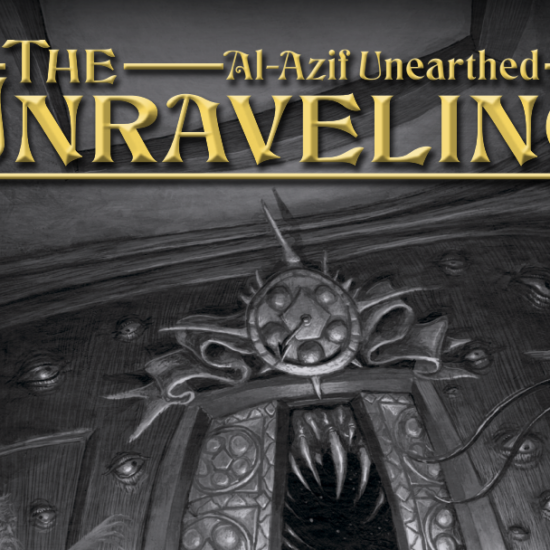A small handful of House Rules my group uses for Call of Cthulhu and other systems.
I use a handful of house rules and traditions for my home group, some specific to Call of Cthulhu, others we carried over from other systems over the years. I’ll share a few that could be of use to other Cthulhu tables, and some compatible with most other TTRPGs.
Best Session Moments
At the end of every session, we take five or ten minutes to hand out ‘awards’ to each other. The GM starts by saying their favourite moment, action, or even just fun quote, from the last session by each player, and awards them some sort of point. For Call of Cthulhu, I’ve been giving a single Characteristic point to the Characteristic most associated with the moment. If a player sucker-punched a cultist out a window, they get a Strength point. If another player came up with a bizarre plan to convince a baker to bake some bagels with basil so they could feed it to a known cultist with a horrific basil allergy, then that investigator gets an Intelligence point.
After the GM awards, the players take turns choosing one player that was responsible for their favourite moment that sessions and awarding them a point in an associated Skill. As they choose only one other player, this sometimes results in a single player getting multiple points in a skill if they stole the show that night. For instance, in our last session, one player aced a combined persuade and psychology roll, convincing an insane and horrifically mutated cultist to consume himself with his own mind-controlled horde of vermin. Said player received three psychology points that session. Other times each player will choose the next player, with everyone coming out with one point.
This does mean that an investigators Characteristics and Skills raise faster, in some cases much faster, than usual. For my group, this isn’t much of an issue. We play a quasi-pulp ruleset and enjoy watching characters grow more experienced. And in a system where they can, and very often do, lose characters to a single misplaced attack or fumbled jump roll, we don’t overly worry about any sort of ‘balance.’
But more than the fun of watching numbers go up, I find it’s a good way to get players to appreciate what their fellow players are doing, remember back on what happened. It also helps them pay more attention in the moment, knowing they’ll briefly be on the spot at the end of the session to remember something, and they can make a friend feel briefly special.
This is a house rule and tradition we’ve brought across multiple systems, starting in Warhammer Fantasy Roleplay, though Traveller, and now into Call of Cthulhu. It should be workable with any system that involves character progression, changing points in specific skills to general experience points, or into subpoints, or even narrative bonuses if the system doesn’t work with numerical stats.
Fumble Skill Gain
A very simple house rule. When you fumble your roll, you get a single point in that skill. We think of it as learning from your mistakes, and slightly lessens the sting of shooting your own foot off with a shotgun, knowing you at least have a 1% better chance of not doing that again next time.
Presession recap
Not a house rule, but a tradition we’ve kept up for years. At the start of a session, the GM makes everyone uncomfortable by asking the players to recap the last session, and sitting quietly until they do so. Then, after they’ve gotten everything horribly mangled, the GM recaps the last session with their own notes. Whether this actually helps anyone remember the last session, who knows, but its fun. At least for the GM.
Yahtzee/Jenga!
A critical is called a Yahtzee and a fumble is called a Jenga. That is all.
Character Creation Connections
We steal this from the Traveller character creation. When making new characters, each player chooses two other player characters to have connections with, with any one character having a maximum of two connections. The players think of some way their characters know each other through some special event, then each gain 1 skill point in a related skill. For example, a player with a Doctor and a player with a Scientist decide their characters studied in university together, and would hide in the library after it shut, staying all night to study, among other things. The Doctor and the Scientist make a note on their character sheets and gain 1 Library Use skill point.
This gives characters a bit of extra depth and shared backgrounds right from the start, and alleviates the awkward ‘making up a reason to work together’ bit of the first session. As time passes these connections usually get forgotten in favour of events that happened in-game, but it’s still fun to occasionally look at your sheet and remember your character and another player’s character sailed across the pacific together, and that’s why you have an odd-numbered Pilot (Boat) skill.
This also works in almost any other system, just adjusting the extra skill point to something that fits the system, or just a simple note on the character sheet.
We of course use more little house rules, or make things up as we go, but those are some of the most useful ones, and easiest to use for other groups.




